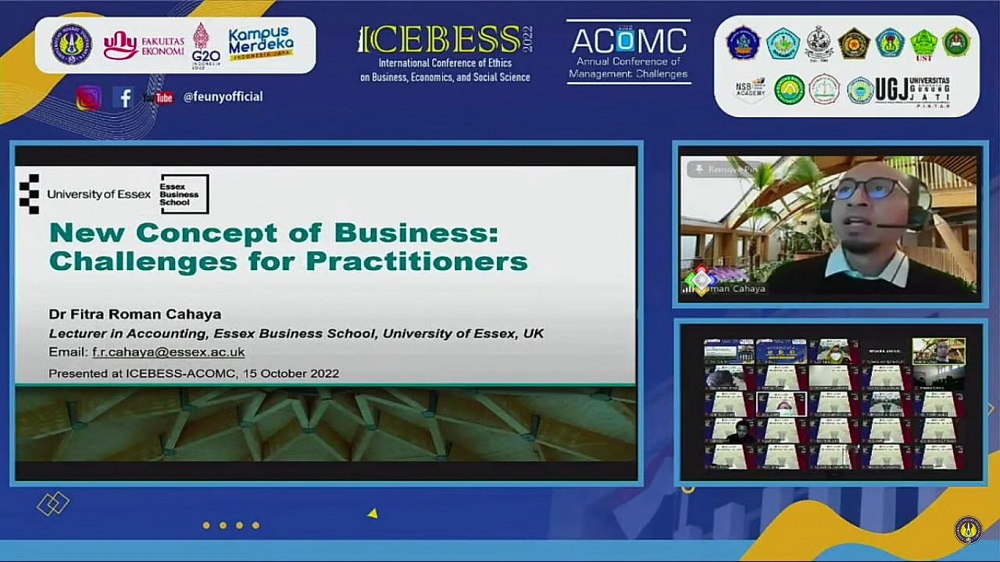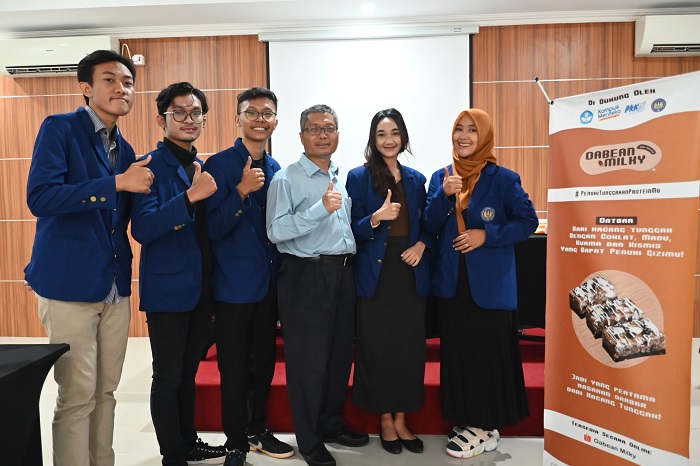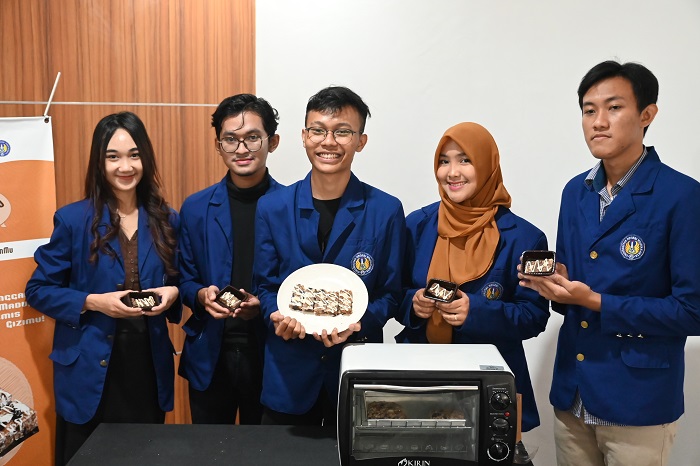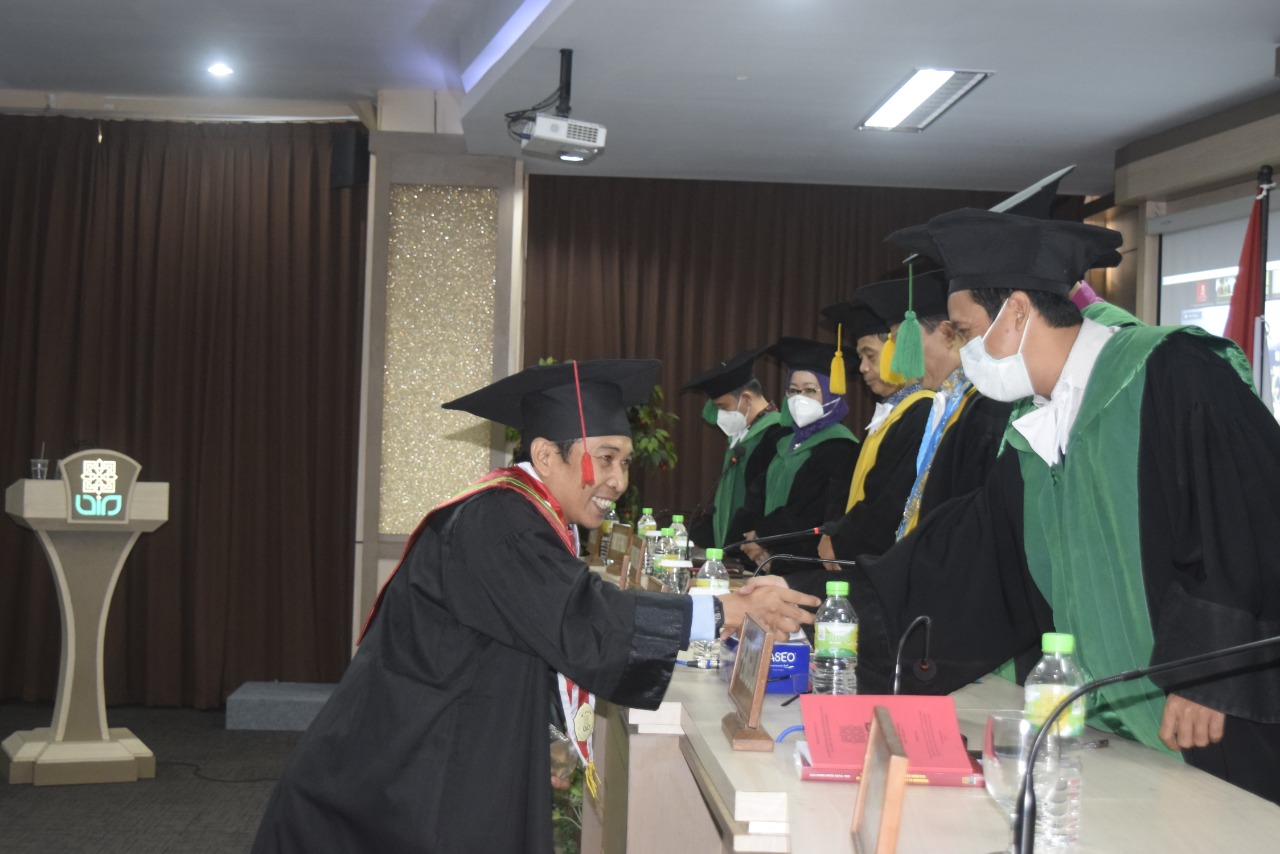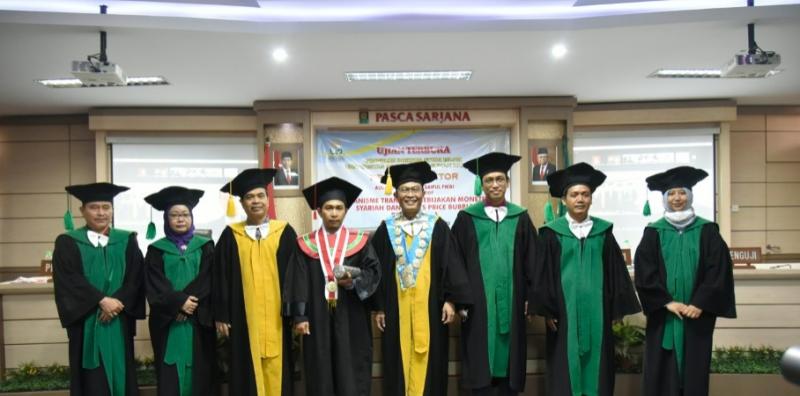Researching the Economic Behavior of Muslim Communities, Mustofa Earns Doctoral Degree
Submitted by feb on Wed, 22/02/2023 - 15:07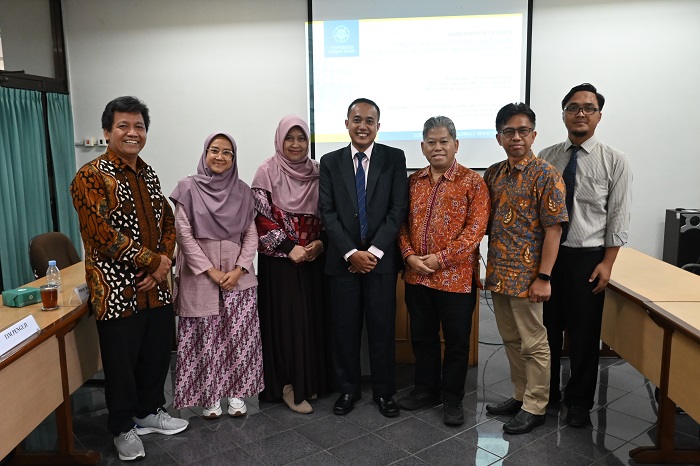
The Faculty of Economics and Business (FEB) Lecturer, Dr. Mustofa, M.Sc. earned his doctorate in Islamic Economics and Halal Industry Gadjah Mada University (UGM) after a graduation ceremony on January 31, 2023. Mustofa presented his dissertation entitled "The Influence of Religiosity and Education on the Economic Behavior of Muslim Communities in Indonesia" with Prof. Dr. Catur Sugiyanto, MA (Promoter) and Akhmad Akbar Susamto, SE., M.Phil., Ph.D. (Co-Promoter) last Tuesday (10/1). This dissertation was successfully defended before the board of examiners namely, Dr. Reni Rosari, M.B.A., Evita Hanie Pangaribowo, S.E., MIDEc., Ph.D., Prof. Dr. Samsubar Saleh, M.Soc.Sc., and Prof. Rizal Yaya, SE., M.Sc., Ph.D., CA., Akt..
His dissertation had six economic behaviors: redistribution preference, tax compliance, risk behavior, work behavior, smoking behavior, and arisan participation. All of them had inconsistent behavioral preferences or irrational behavior.
Mustofa said that the economic behavior of Muslim communities is not only based on rationalism but also emotion, individual background, tradition, and belief (religiosity) which often contradicts rationality.
The Lecturer of Economics Education FEB UNY concluded that the government must pay attention to religiosity in optimizing Indonesia’s economic development. Collaboration between the government and religious leaders is needed for policy effectiveness. (mstf/fdhl/tr-lia)


